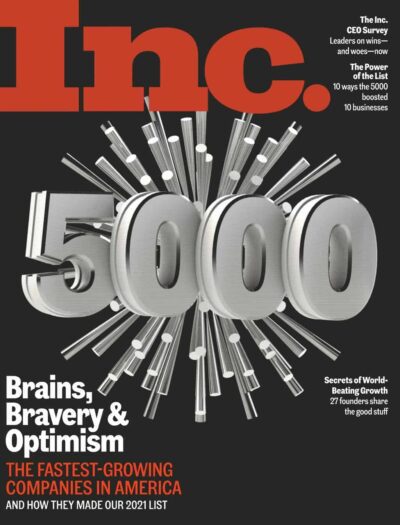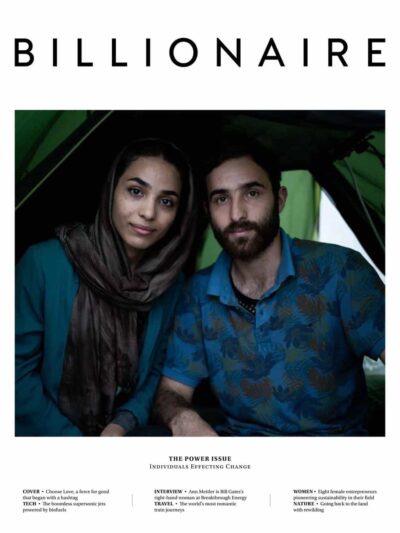

Here’s All the Countries With TikTok Bans as Platform’s Future in U.S. Hangs In Balance
On Wednesday, Joe Biden signed into law a bill that could lead to TikTok being banned in the U.S. if ByteDance, the app’s Chinese-owned parent company, does not sell it within a year. Lawmakers are increasingly worried that the app could pose national security concerns to the U.S. if the Chinese government were to access data collected by the app.
[time-brightcove not-tgx=”true”]
TikTok’s CEO, Shou Zi Chew, spoke in front of Congress in January of this year, defending the platform’s position. “We have not been asked for any data by the Chinese government and we have never provided,” he testified.
Nevertheless, despite the CEO’s assurances, many governments around the world remain unconvinced, and have instituted their own TikTok bans and restrictions.
Here are all the countries that have banned or partially banned the app:
Afghanistan
The Taliban government banned TikTok in April 2022, saying that the application was “misleading youths.”
Armenia
Armenia reportedly temporarily blocked TikTok for multiple days during border clashes with Azerbaijan in September 2022.
Australia
TikTok was banned from Australian government devices in April 2023, but is still allowed on devices belonging to the general public.
Austria
Austria has banned TikTok from all government employee devices as of May 2023.
Azerbaijan
Azerbaijan blocked TikTok temporarily during border clashes with Armenia in September 2022. The application was blocked again one year later due to “anti-terrorist measures” according to Armenian local media. It was restored again on October 1, 2023.
Bangladesh
In August 2021, a Bangladeshi court ordered the government to remove TikTok and several other apps from the country’s app store in order to “save children and adolescents from moral and social degradation.” The application was later allowed to return, providing its content moderation was in line with Bangladesh’s cultural sensibilities.
Belgium
In March 2024, the Belgian government announced that it was banning the app from all government devices. “The safety of our information must prevail,” said Belgian Prime Minister Alexander De Croo. TikTok is still available on non-government affiliated devices.
Canada
Canada banned TikTok from all government-issued mobile devices in February 2023. “I suspect that as the government takes the significant step of telling all federal employees that they can no longer use TikTok on their work phones, many Canadians from business to private individuals will reflect on the security of their own data and perhaps make choices,” Prime Minister Justin Trudeau said when the ban was announced.
China
China itself does not permit the international version of TikTok to be used on the mainland. Instead, users must download Douyin, the Chinese version of TikTok which is subject to censorship from the Chinese Communist Party.
Denmark
Denmark’s Ministry of Defense banned the app from its employees’ work phones in March 2023. The country’s main public service broadcaster also instituted special protocols that mean journalists need special approval in order to use the app for reporting purposes following a warning from Denmark’s Center for Cybersecurity.
Estonia
TikTok was banned from the work phones of state officials in Estonia in March 2023.
European Union
The three main institutions that make up the E.U.–the European Parliament, European Commission and the E.U. Council–have all banned TikTok from employees’ work phones. Employees are also advised to remove the app from their personal devices.
France
France has banned several social media applications from government employees’ phones including Twitter, Instagram, and TikTok as of March 2023.
India
India is one of a handful of countries that has completely banned TikTok, including on citizens’ personal devices. The ban was implemented in July 2020 after a border clash between China and India left 20 Indian soldiers dead. The two countries have had an ongoing centuries over their border that occasionally turns violent. In the aftermath of the 2020 border clash, some Indians called for a boycott of Chinese goods, and India’s information technology ministry put out a statement claiming that certain mobile applications were “stealing and surreptitiously transmitting users’ data.” After the ban, many creators migrated to YouTube Shorts and Instagram Reels.
Indonesia
Indonesia banned TikTok Shop, a portion of the application that allows creators to sell products to their audiences, in October 2023 for violating the country’s e–commerce laws.
Iran
The Islamic Republic bans TikTok along with other internationally popular social media platforms including X and Facebook.
Ireland
TikTok was banned from government devices in Ireland in April 2023.
Jordan
TikTok has been banned in the Kingdom of Jordan since December 2022, after a police officer was killed during a protest and videos of the event flooded social media.
Kyrgyzstan
The small, formerly Soviet country banned Tiktok in August 2023, arguing that the application was harmful to the development of children.
Latvia
The app is prohibited on work phones in Latvia’s Foreign Ministry as of March 2023.
Malta
Tiktok is blocked from government-provided cell phones along with all other non-government applications in Malta.
The Netherlands
The Dutch government banned the app from employees’ work phones in March 2023. The relationship between Amsterdam and Beijing has soured in the last year after a Dutch intelligence agency called China “the biggest threat to the Dutch economic security,” per Bloomberg.
Nepal
Nepal banned TikTok for all its citizens in November 2023, saying the app was “detrimental to social harmony.”
New Zealand
Lawmakers and parliament employees in New Zealand were prohibited from having TikTok on their work phones as of March 2024. However, exceptions can be made if a lawmaker believes TikTok is necessary for their democratic duties, per the AP. The ban does not apply to employees in other branches of the government.
North Korea
North Korea restricts most of its citizens from accessing the internet. A few websites and apps are permitted for the privileged elite to visit, but TikTok is not among them.
Norway
The Norwegian parliament banned TikTok from employees’ work devices in March 2023. Municipal employees in the cities of Oslo and Bergen have also been encouraged to remove the app from their devices. “Norwegian intelligence services single out Russia and China as the main risk factors for Norway’s security interests,” said Justice Minister Emilie Enger Mehl in a statement, per EuroNews.
Pakistan
Pakistan has banned TikTok temporarily at least four times. However, the application was restored in November 2021, and has reportedly been available in the country since then.
Russia
Currently, Russians are restricted in terms of what they can view on TikTok, and viewers primarily only see videos made by Russian creators. This month, it has been reported that the Russian government intends to ban TikTok in order to encourage citizens to use domestic social media platforms, instead.
Senegal
Senegal instituted a total ban of the application in August after an opposition candidate was accused of using the platform to spread “hateful and subversive messages.” The government of Senegal has refused to reinstate the app unless a mechanism is developed that allows the government to remove specific accounts.
Somalia
In August 2023, the Somali government announced that it was banning TikTok, Telegram, and the online betting website 1XBet. Minister of Communications Jama Hassan Khalif said that the apps were used for dangerous propaganda. “The Minister of Communications orders internet companies to stop the aforementioned applications, which terrorists and immoral groups use to spread constant horrific images and misinformation to the public,” the minister said in a statement, per Reuters.
Taiwan
Taiwan banned all government devices from using Chinese-made software, including TikTok, in December 2022 after a warning from the FBI.
United Kingdom
In March 2023, the U.K. banned all government employees from using TikTok on government provided mobile devices. “Given the particular risk around government devices, which may contain sensitive information, it is both prudent and proportionate to restrict the use of certain apps, particularly when it comes to apps where a large amount of data can be stored and accessed,” Cabinet Office minister Oliver Dowden told parliament.
United States
Congress and the armed forces have banned TikTok from all of their employees’ devices. Approximately half of all states ban the app on state-owned devices, and the Federal government similarly banned the app from employees’ devices in March 2023.
Uzbekistan
TikTok has been unavailable in Uzbekistan since July 2021, after the authorities said the app was not compliant with the country’s personal data protection laws.
Get the latest work and career updates delivered straight to your inbox by subscribing to our magazine category today. Stay informed and ahead of the game with Subscrb.
The content on this website has been curated from various sources and is for informational purposes only. We do not claim ownership of any of the content posted here, all rights belong to their respective authors. While we make every effort to ensure that the information is accurate and up-to-date, we cannot guarantee its completeness or accuracy. Any opinions or views expressed on this website are solely those of the original authors and do not necessarily represent our own. We do not endorse or take responsibility for the content or actions of external websites or individuals linked from this website. Any reliance on the information provided on this website is done at your own risk. Please note that this article was originally seen on the source website TIME, by the author Anna Gordon
-
SALE!




Forbes Asia Magazine Subscription
From: RM220 / year -
SALE!


Fortune Magazine Subscription
From: RM118 / year -
OUT OF STOCK




The Economist Magazine Subscription
From: RM1530 / year -


Inc. Magazine Magazine Subscription
From: RM22 / year -


Consumer Reports Magazine Subscription
From: RM22 / year -


Harvard Business Review Magazine Subscription
From: RM83 / month -


Entrepreneur’s Startups Magazine Subscription
From: RM4 / year -


BILLIONAIRE Magazine Subscription
From: RM131 / year



